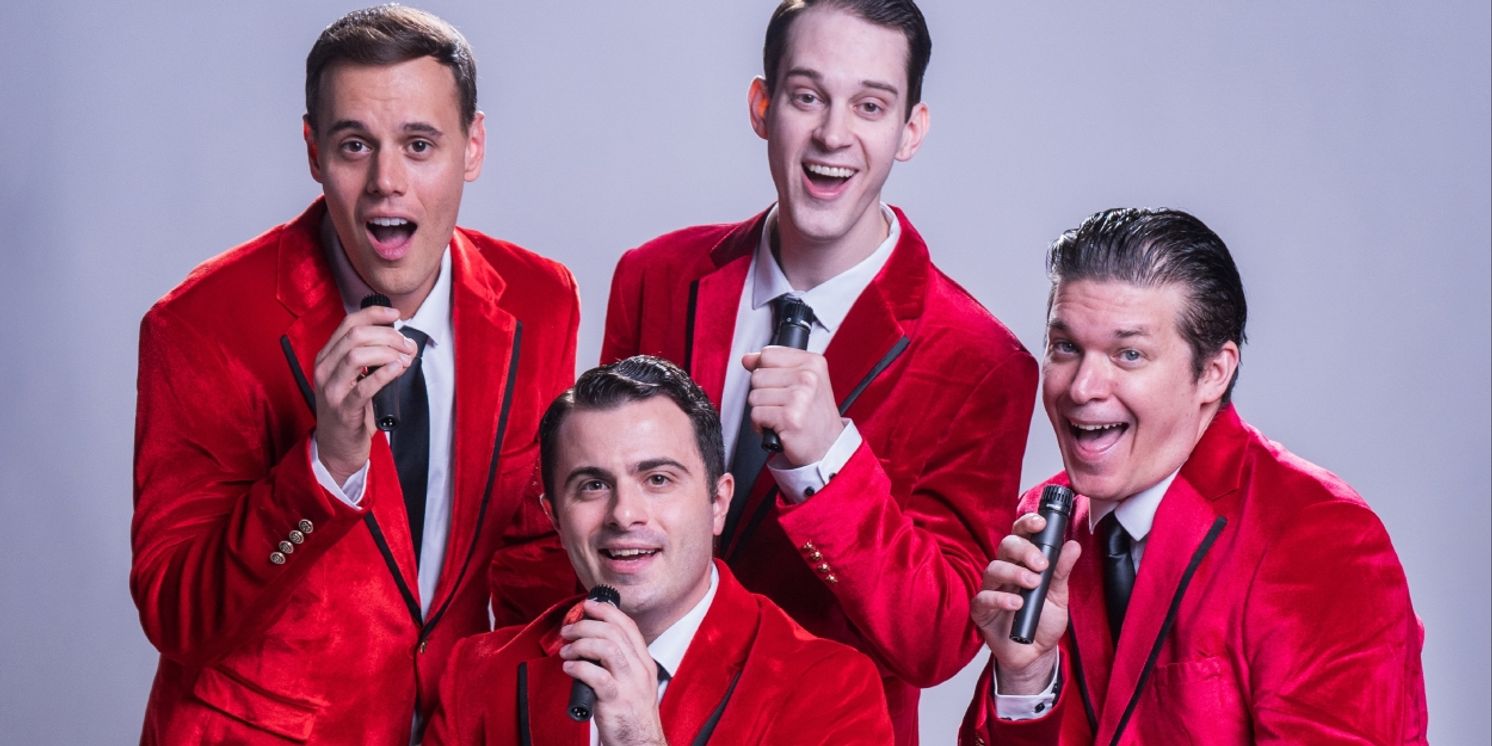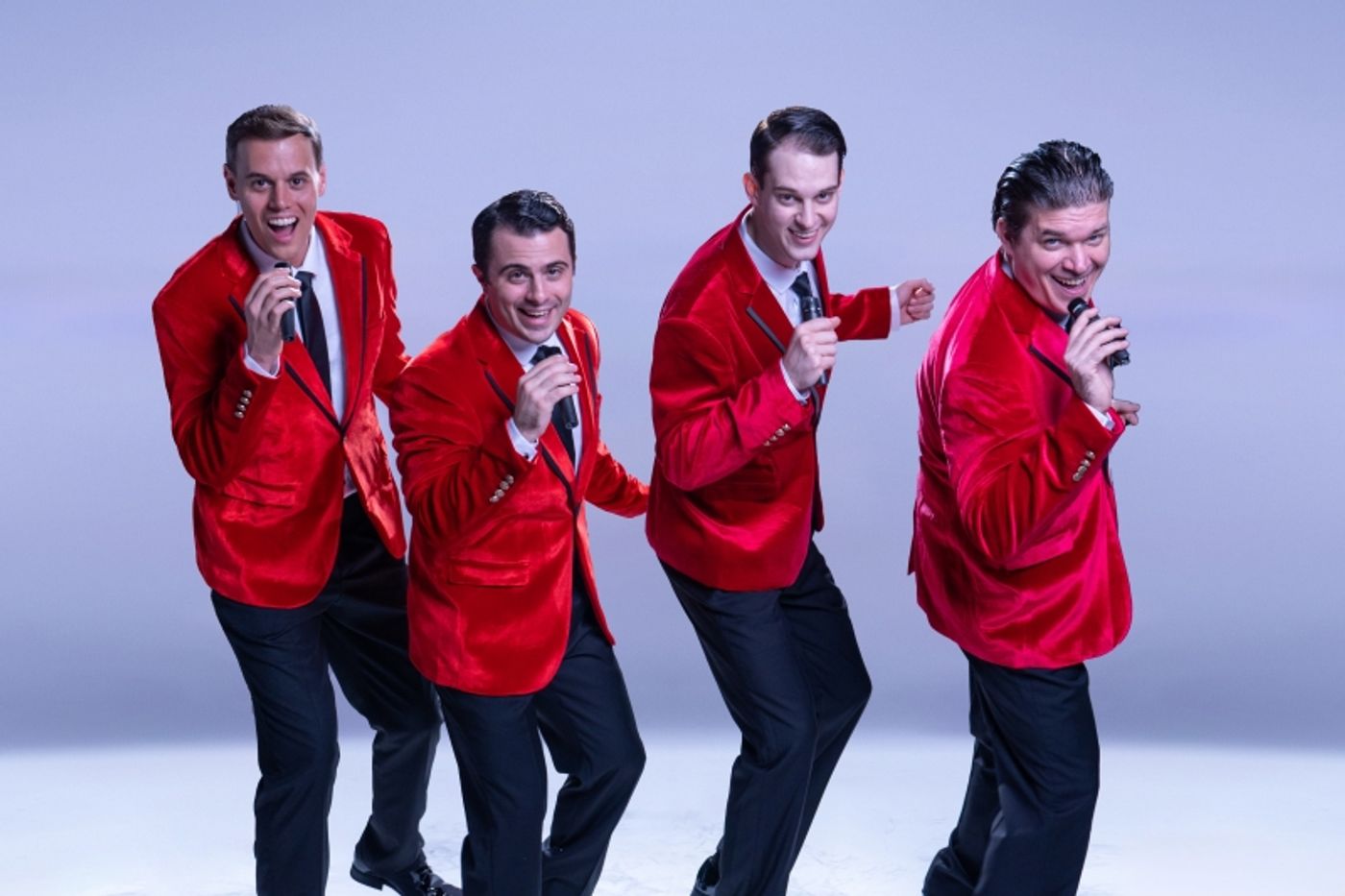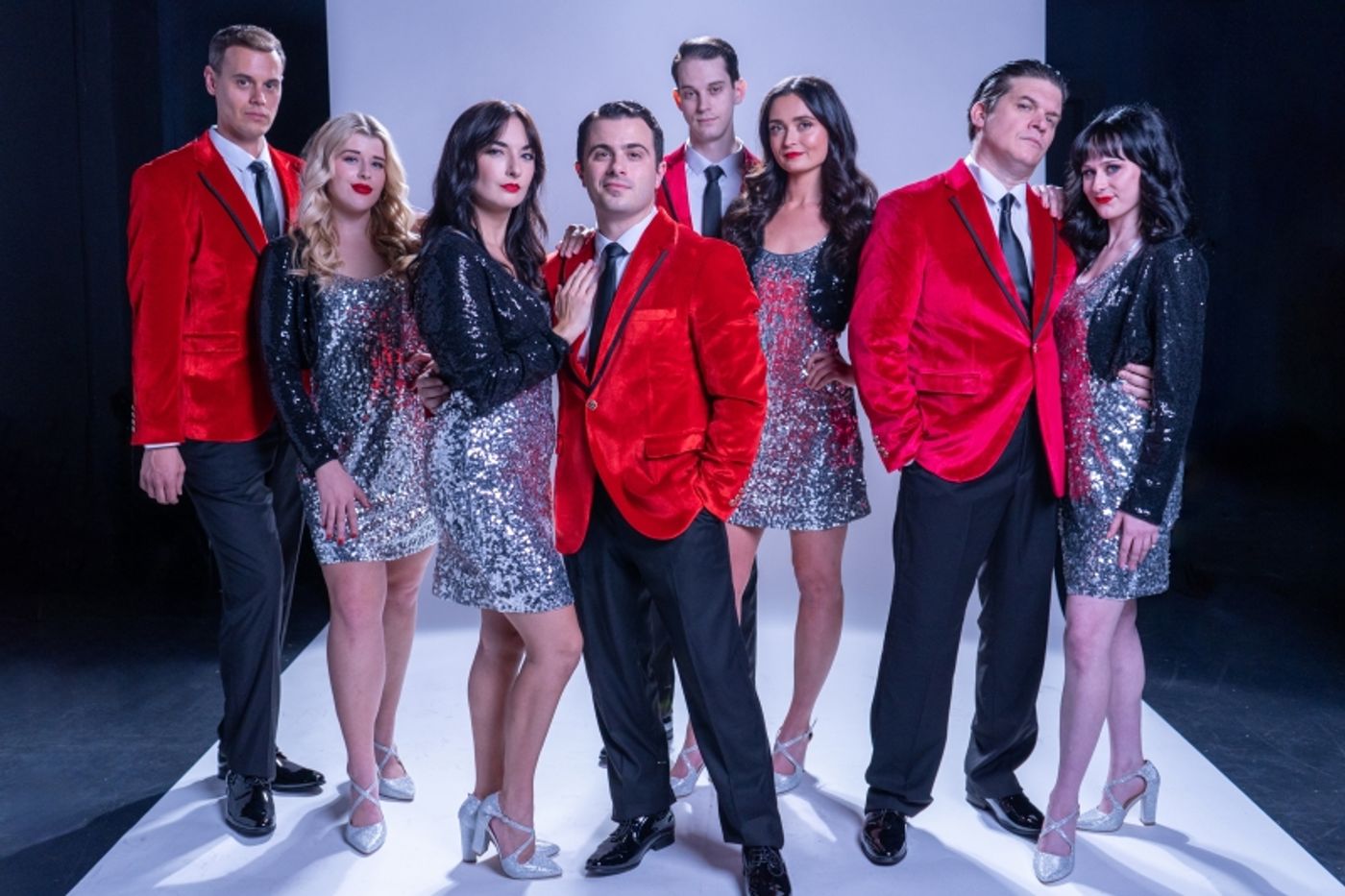Review: JERSEY BOYS at Garden Theater
SNS production like Behind-The-Music tale of The Four Seasons

The Nov. 30 performance of JERSEY BOYS at the Garden Theater (1187 N. High Street in downtown Columbus) marked a huge milestone for actor Adam Marino..jpg?format=auto&width=1400)
Marino, who plays Frankie Valli in the Short North Stage’s musical about the doo wop group The Four Seasons, celebrated his 200th show in that role.
“Frankie Valli had been my dream role for the better part of a decade, and I was just hopeful I would get to do it once,” Marino said afterward. “Reflecting back, now that I’ve done it 200 times (with nine different production companies), I couldn’t be more grateful or feel more blessed.
“Even more so, I got to celebrate No. 200 somewhere as amazing as Short North Stage. To everyone who has made this possible: thank you. It wouldn’t have happened without you.”
The audience celebrated along with Marino as he, Mike Backes (who plays lead guitarist Tommy DeVito), Aaron Trumbull (bassist and bass vocalist Nick Massi) and Eric Byrd (keyboardist Bob Gaudio) regale the four-decade odyssey of a four-man band who made an unlikely journey from the Jersey shore to the Rock and Roll Hall of Fame.
JERSEY BOYS is not a jukebox musical, a show that takes a bunch of songs of a genre or an artist and weaves them into a story. (See Abba’s MAMMA MIA or Queen’s dreadful WE WILL ROCK YOU as examples.) While it puts to use the music of the Four Seasons, JERSEY BOYS is more like a two-act theatrical episode of VH-1’s “Behind The Music.”
To the outside world, the Four Seasons appeared to be America’s counterbalance to the British Invasion of the Beatles, the Kinks, and the Who. They sold an estimated 100 million records worldwide and breached the Top 40 29 times including number one hits “Sherry,” “Big Girls Don’t Cry,” “Walk Like A Man,” “Rag Doll,” and “December 1963 (Oh What A Night).” As is the case in all Behind The Music episodes, beneath the “rags to riches” surface story brews a stew of dysfunction, divorces, deaths, and debauchery.
As you would expect from someone who has done the role over 200 times, Marino not only captures the powerful falsetto voice of Valli, but the singer’s world weariness and fierce loyalty to the members of the band.
Directed and choreographed by Dionysia Williams Velazco, JERSEY BOYS is not just the story of Valli but the Four Seasons. While Valli is the one name mostly associated with the group, the other three members who made up and tore up the band all get an equal say in Marshall Brinkman and Rick Elice’s script.
In a four-person band, usually a few disgruntled members feel their contributions are being overlooked. Midway through the second act, Massi explains why he left the band, “Alright, I'll be honest with you. It could have been an ego thing. Everybody wants to be up front. But if there is four guys, and you're Ringo?”
In this show, however, no one is a “Ringo.” JERSEY BOYS works because of the chemistry of its individual performers.
Prior to the SNS production, Backes talked about how he kept trying out for the DeVito role in this show but kept getting turned down.
It’s impossible to understand that. Backes is dynamic in portraying the group’s founder as a flawed, streetwise tough who guided the band through its early days. And yet he feels he is being pushed aside by Gaudio and Valli.
Like Valli, Massi is from the neighborhood, but Trumbull brings out his character’s childhood bonds being frayed after being DeVito’s road roommate for over 10 years. When he realizes this is not the life he dreamed of, he leaves the group and takes his bass voice with him. The band is never the same without him.
Byrd blends his dynamic tenor voice with the complexity of his Gaudio character. While he was the youngest member of the Four Seasons, Gaudio came into the group having composed his first hit song (“Who Wears Short Shorts?”) at the age of 15.
Yet Gaudio’s clearly an outsider. When DeVito tries to hustle Gaudio into accepting a $25 a week paycheck as an auxiliary member of the band, Gaudio makes a counteroffer. He insists on being made an equal member of the group, keeping the publishing rights on his songs and, the clincher, “we can work out a favored nations on any mechanical and ancillary rights.” DeVito quickly realizes he is in over his head with this one.
While Valli and Massi are bound to DeVito over the loyalty of being from “the neighborhood,” Gaudio has a different code: “I'm not drawn to the old neighborhood. My life never revolved around the old neighborhood. I don't give a f**k about the old neighborhood.”
While JERSEY BOYS centers around those four, it is the players on the periphery that complete the picture. Luke Bovenizer brings a Paul Lynde-esque charm to his role of record producer Bob Crewe. Sarah Chelli, who plays Valli’s first wife Mary Delgado, and Joelle Smith, who plays his second Lorraine, pass along a feistiness (initially) and discontent (at the end) to their relationships with Valli. Cody Schimd puts a touch of a New Jersey nervousness to Joe Pesci, a boyhood friend of DeVito who goes on to be a star in “Goodfellas,” “Casino,” and “Home Alone.”
And in one of those “only in a musical” moments, Aaron Natarelli seamlessly handles the transition of being mafia don Gyp DiCarlo in one scene and a consoling priest in another.
JERSEY BOYS would not work without a great soundtrack to go along with it. Musical director Jonathan Collura brings to life the group’s songbook that brings the crowd to its feet by the reprise of the closing number “Oh, What a Night.”
Towards the end of the musical, Valli seems to romanticize the group’s meteoric rise to the top.
“They ask you ‘what was the high point?’ Hall of Fame, selling all those records, pulling ‘Sherry’ out of the hat, it was all great,” he said. “But four guys under a streetlamp, when it was all still ahead of us, the first time we made that sound, our sound. When everything dropped away and all there was the music, that was the best.”
With the show set to close on Dec. 29, Columbus residents have 24 performances left to see what Valli is talking about.
Photo Credit: Firebyrd Media


Reader Reviews

Videos

